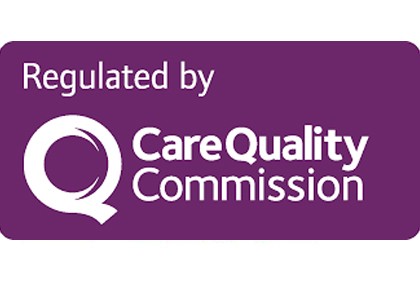What people say
The staffs are Unicare are very delightful , with such a willing and helpful personality. Thanks Unicare
Unicare Client
0208 239 6877
download now

Learn more about our companions and carers
Here’s what our clients say about Unicare Live-in Care
Call us on 0208 239 6877 or request a call back

Live-in care is fast becoming the preferred choice for those who need extra help to stay at home. Gone are the days when moving into a care home was inevitable. With the benefits of live-in support better understood, the landscape is changing. If you want to stay put (97% of us do), the search for the right live-in care provider can begin. Many companies claim to offer a similar service at a similar price, so it can be hard to know which one to choose. How they answer these five questions will help you make a better decision…
There are two different types of live-in care provider. Introducers will simply source a qualified carer for you to employ, an approach which can reduce cost, but carries its own set of responsibilities.
Fully managed providers employ full-time staff, train them well and select a carer that suits you. Many consider this a simpler solution and enjoy the extra peace of mind it brings.
You’ll find personal reviews of many live-in care providers online, from respected websites like Trustpilot or NHS Choices. They’re often the next best thing to hearing it from a friend or family member and could give you a valuable insight into the service you’re considering.
A good provider will explain how they will keep you safer and healthier at home. Aside from tailored, 1-2-1 support, this might include making subtle home adaptations to improve your mobility and reduce the risk of falling; or using the latest monitoring technology to pick up the first signs of an infection, helping to prevent emergency trips to hospital.
The way in which your carer is supported is one of the greatest influences on the care you receive. The best providers recognise the importance of frontline staff, giving them all the help they need to deliver an outstanding service. Some give specialist training in complex conditions like dementia, a deep understanding of symptoms and how they might affect you.
Reputable companies are regulated and inspected by the Care Quality Commission (CQC). A service is assessed in five categories to be Outstanding, Good, Requiring Improvement or Inadequate.
It must receive the highest rating in at least two categories to be deemed overall Outstanding.


We understand that the cost of care is a major consideration when looking for later life support options, which is why we believe it’s important to help…


Cost is a significant factor when you’re considering any form of care. So knowing your options – from healthcare funding to benefits ….


Live-in care is fast becoming the preferred choice for those who need extra help to stay at home. Gone are the days when moving into a care home was inevitable…


For anyone requiring support and assistance with their personal care but who wishes to retain an independent lifestyle, hiring a live in carer provides…
The staffs are Unicare are very delightful , with such a willing and helpful personality. Thanks Unicare
Unicare Client
All that is required is a spare room for the carer to have their own space during breaks and to sleep, with a TV for their relaxation and internet access so they are able to complete the records required to manage your care. Your live-in carer will cook your daily meals and eat the same food, with you if you wish.
The carer will need to have a two-hour break in any 24-hour period, which many clients usually find works best when they are resting in the afternoon. If you require care and support during this period many will have family visit to cover this break, or we can organise for an hourly care provider to cover this for you.
At Unicare, we understand the importance of continuity and consistency of care. However as we are sure you will appreciate, that it is important for our carers own wellbeing to have sufficient time off work and holidays to rest, so that they continue to deliver the highest quality of care that you should expect.
You will have a team of two carers who will provide care in your home usually for two weeks at a time, rotating to the next carer after two weeks. Whilst this is a typical rota patten we do offer various patterns, including a four-week working period with two weeks off. A team of the same two carers ensure they really get to know and understand you as a person. If one carer requires a short amount of time off, we will always endeavour for the other carer to provide cover to ensure consistency of care.
As a fully managed service, however we have a rapid response and relief team of highly trained professional carers who can come to support you during your carer’s holidays and for longer periods of leave. These are always planned and scheduled well in advance and communicated to you and your family so you can be reassured that we can continue to meet your needs.
Unicare provides live-in care to couples. Receiving care in the comfort of the home you have enjoyed together for, what is probably many years with all your memories and possessions around you is fast becoming the preferred choice for couples, as opposed to enduring the upheaval, disruption and emotional upset of moving into a care home. Whether one of you is living with a specialist condition, like dementia or Parkinson’s and the other one just requires mobility or frailty care, or to recover from an operation, we will provide you with a perfectly matched carer who will support you both to live a better quality of life as a couple, but also individually according to your needs, choices and preferences.
One of the most significant considerations when planning care for a couple, is the cost of care. If a couple moves into a care home, the cost of care is typically double the price of receiving high quality, live-in care at home. With live-in care there is only one weekly fee for the care team, with a small supplement depending on needs, so it is a very cost-effective alternative to moving into a care home.
At Unicare, we know receiving care in the comfort, safety and familiarity of your own home has far reaching benefits in improving overall health and wellbeing for a person living with dementia. Moving at any stage in life can be very stressful, but can negatively impact a person who is living with dementia, which is why many families up and down the country choose live-in care as an alternative to moving into a care home to receive high quality dementia care.
All our professional carers receive unrivalled training in dementia care before they care and support someone with the condition. Our work with the Contented Dementia Trust to introduce the SPECAL approach to dementia care helps us to understand and discover what is important to the person living with dementia, enabling us to develop a purposeful and meaningful programme of care. Working closely with Dementia UK.
There may be care funding available to you to receive a live-in care service depending on your financial circumstances and your care needs. The Local Authority will only fund care at home (referred to as social funding) if your assets are worth less than £23,500, which we know that sadly for many families their financial situation exceeds.
If you are assessed and have an identified healthcare need you may be eligible for NHS Continuing Healthcare funding organised by your local Clinical Commissioning Group (CCG) to support you to receive care in your own home.
Many families are faced with having to fund the care they receive themselves (referred to as self-funding care). For these families there are options to help finance care at home, including a Care Fees Annuity, which is an insurance policy you purchase to cover the cost of your care, or by realising capital in your assets through an Equity Release scheme.
Please complete our short assessment form and one of our specialist team on live-in care will be in touch shortly.














